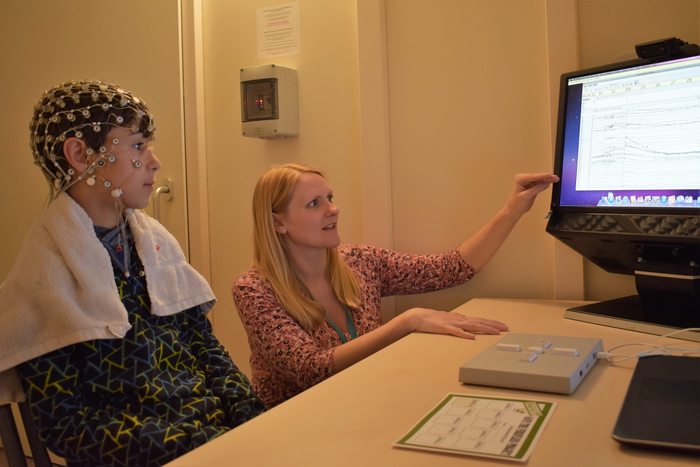Dyslexia is well-known to impact reading ability but it has been unclear which brain processes are affected by the condition. Whether dyslexia is, at its core, a visual processing disorder is hotly debated among researchers. With reading and writing a key challenge among children with dyslexia, increasing understanding of its effects on the brain might improve existing interventions.
A new study combined visual processing and brain activity in dyslexia and found that children with it are slower to process visual information. The experiment involved children ages six to 14 and asked them to identify the average direction of motion of a mass of moving dots while their brain activity was measured. It found children with dyslexia took longer to gather the visual evidence, and were less accurate, than their typically developing peers, and that the behavioral differences were reflected in differences in brain activity.

Credit: University of Reading
Brain activity monitoring using EEG in the study showed synchronized activity over the centro-parietal regions of the brain involved in decision-making steadily increased in all of the children during the task until they made a decision. However, this happened more gradually in the children with dyslexia.
The study supports a link between motion processing and dyslexia, although the causes are not yet known.
“These findings show that the difficulties faced by children with dyslexia are not restricted to reading and writing. Instead, as a group, children with dyslexia also show differences in how they process visual information and make decisions about it," said Dr. Cathy Manning, lead researcher in the Centre for Autism at the University of Reading.




